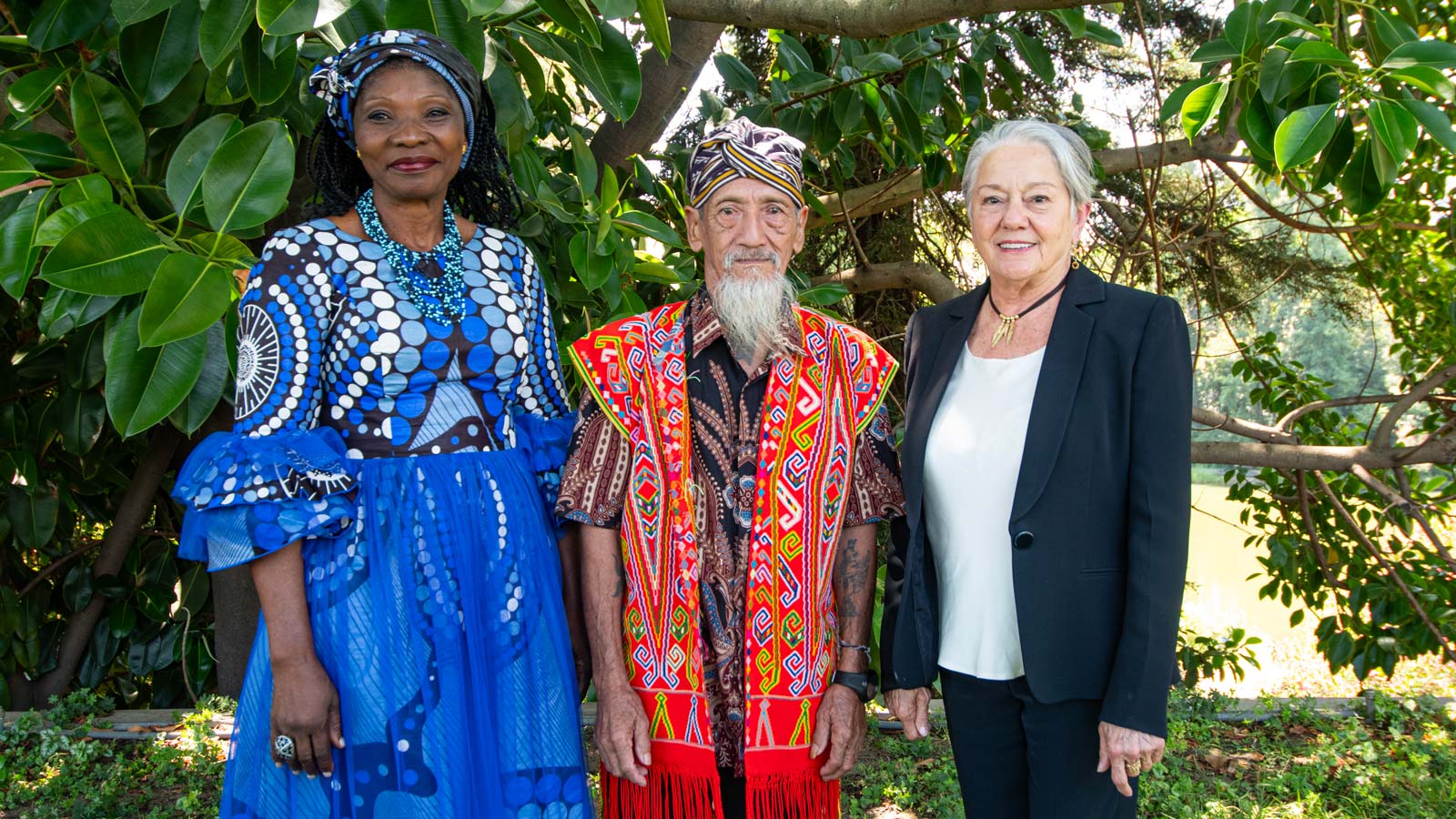Gulbenkian Prize for Humanity 2023
Ecosystem restoration leaders win this year’s prize

In recognition of their leadership and tireless work in restoring and protecting vital ecosystems, this year the Gulbenkian Prize for Humanity went to three inspiring individuals: Bandi “Apai Janggut”, customary community leader (Indonesia), Cécile Bibiane Ndjebet, activist and agronomist (Cameroon), and Lélia Wanick Salgado, environmentalist, designer, and scenographer (Brazil).
The independent jury – composed of members with expertise in Earth system science, climate action, environmentalism, and climate justice from scientific, technological, political and cultural realms – chaired by former Federal Chancellor of Germany, Angela Merkel, selected these three individuals out of 143 nominations from 55 countries for their decades-long climate defense efforts restoring vital ecosystems (forests, landscapes, and mangroves), and protecting land with and for the benefit of local communities.
The Gulbenkian Prize for Humanity was set up and first awarded in 2020 to recognise outstanding contributions to climate action and climate solutions that inspire hope and possibility. The one million euro prize rewards individuals and organisations who are leading society’s efforts to tackle the single biggest challenge facing humanity today: the climate crisis.
The prize is a manifestation of the Calouste Gulbenkian Foundation’s commitment to put sustainability at the heart of everything it does. The Armenian Communities Department, alongside all the departments of the Foundation, recognizes the urgency of climate action and is working on incorporating climate defense initiatives in its activities; while the Gulbenkian Prize for Humanity is global, and not part of the Armenian Department’s programming, our Department will mainly focus its environmental activities in Armenia.
Read more about the winners of the 4th edition of the 2023 Gulbenkian Prize for Humanity here, and more about the Gulbenkian Prize for Humanity here.
